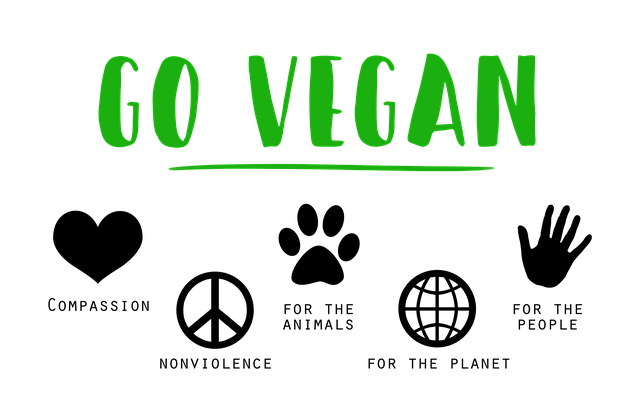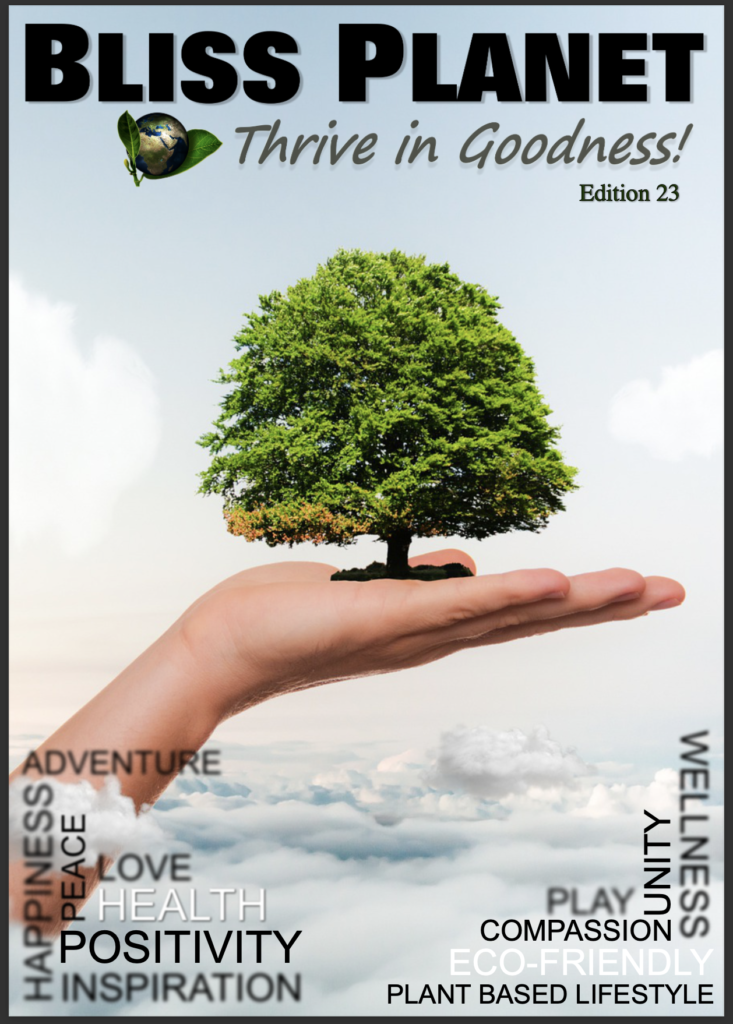Introduction
Are you considering changing your lifestyle and transitioning to a plant-based vegan lifestyle? If so, you’re making a brilliant choice for both your physical and mental health! Becoming vegan is a great way to become more conscious of your eating habits while still being able to enjoy delicious and nutritious meals. However, there are some important things to consider when making the switch, such as increasing your B-12 intake and instilling a sense of compassion when eating. Read on to find out the essential components of a successful transition to a vegan lifestyle and how to live a healthy and vibrant life!
Vegan Lifestyle Is Becoming Popular
The vegan lifestyle is becoming more and more popular as people become more aware of the benefits of eating a plant-based diet. Going vegan can have many positive effects on your health, the environment, and even animal rights. However, transitioning to a vegan diet can also be difficult without the right knowledge and resources. Here are some important tips to keep in mind when going vegan.
Important Vegan Tips
1. Start slowly.
Don’t expect to switch your entire diet overnight. Start by adding more plant-based meals and slowly reducing the amount of animal-derived products in your diet. It’s okay to take your time when transitioning to a vegan lifestyle.
2. Eat a variety of foods.
Eating a variety of plant-based foods is important when going vegan. Not only will this keep you from feeling deprived, but it will also ensure that you are getting the nutrients you need. Aim to include a variety of vegetables, nuts, seeds, beans and legumes, and whole grains in your diet.
3. Supplement your diet.
Vitamin B12 is an essential vitamin that is not found in adequate amounts in a vegan diet. Therefore, taking a B12 supplement or eating foods fortified with B12 is necessary for vegans.
Note there is a superior form of B-12
Methylcobalamin is a naturally occurring form of vitamin B12, while cyanocobalamin is a synthetic form found only in supplements. The body can more easily absorb methylcobalamin, making it the superior form of B12. Methylcobalamin is also thought to be more effective in treating certain forms of anemia. This is because methylcobalamin helps to maintain healthy levels of red blood cells and prevent anemia. Cyanocobalamin, on the other hand, is not as easily absorbed by the body and is not as effective in treating anemia.
4. Find a support system.
Having a support system is essential when transitioning to a vegan lifestyle. Find people who share your values and will help keep you motivated and accountable. This could include a vegan mentor, vegan-focused books, or an online vegan community.
5. Practice compassion.
Going vegan is not just about what you eat. It’s also ethical self-expression that involves compassion for animals. Practice kindness and respect in all areas of your life and remember that it’s okay to make mistakes.
Following these tips can help transition to veganism simpler and more enjoyable. Eating a plant-based diet can have many positive effects on your health, the environment, and the welfare of animals.
6. View How To Be A Healthy Vegetarian for a guide to help you along your journey.
Conclusion
Veganism has become an increasingly popular way of life for those looking to lead a healthier lifestyle. It is a great lifestyle choice that can help improve your overall health and wellbeing. It can also have a positive effect on the environment and animals. Going vegan requires some dedication and commitment, but with the right knowledge and resources, it can be an enjoyable and rewarding experience. It is also important to find a balance that works for you and your lifestyle. With proper planning and a balanced vegan diet, you can achieve the positive health benefits that it offers. With plant-based options growing in availability, it has never been easier to transition. There is so much to learn and explore with the vegan lifestyle, and the possibilities that come with it are truly limitless.
The following is a transcript and video from “What you need to know before switching to a vegetarian diet”
Been seeing headlines in the news recently about the potential pitfalls of a strictly vegetarian diet. It’s a major lifestyle decision and our chief health editor Dr. Partha Nandi, is here with what to consider before going vegetarian.
Hi Dr. Nandi all right. What are the people who are doing this wrong forgetting when they do it? So Jen it’s critical for anyone thinking of becoming a vegetarian to at least have a basic understanding of nutrition because you need to replace the vitamins and nutrients you’d normally get from eating meat, poultry, or fish.
The major ones are zinc vitamin B and iron. Now some vegetarians may have problems with hair loss or experienced mood issues like depression or anxiety, but that’s only if they’re not doing their homework and finding other ways to get essential vitamins and minerals into their diets.
Alright, so I assume as always you’ve got some prescriptions for us for viewers who might think that they want to make the switch from being a meat eater to a vegetarian. You know me very well. So yeah, I do. So deciding to cut meat from your diet could be a huge step forward for many people as long as they know what they’re getting into. So my prescription is first do your homework and talk to your doctor first if you’re thinking about going meat free. Also, make sure you’re getting enough protein from sources like almonds, kale, soy, broccoli and beans and don’t be a junk food vegetarian. Right, even if you don’t eat meat, you can still be unhealthy and overweight if you’re careless with what you eat.
That’s really important and experiment and have fun there’s an amazing assortment of food out there for you to choose from so it doesn’t have to be boring if you think of going vegetarian.
If you want to do this, what are some of the major benefits out there of cutting meat out of your diet? They’re really huge a recent study out of Harvard showed that people who ate healthy plant-based foods had a 25% lower chance of getting heart disease several other studies have shown that people who follow a strictly vegetarian diet are more than 2 times less likely to have type 2 diabetes.
So there are major upsides to following a plant-based diet but like I said it’s all about the quality of the food that you eat make sure you’re getting plenty of fruits and veggies and nuts and whole grains and don’t eat vegetarian junk food.






Going vegan is a great way to improve your health, the environment, and the lives of animals. But it can be a bit daunting at first, especially if you’re not sure where to start. Here’s a quick guide to help you make the transition to a vegan diet:
Do your research. Before you make any changes to your diet, it’s important to understand what a vegan diet is and what it entails. There are a lot of great resources available online and in libraries that can help you learn more about veganism.
Make a plan. Once you’ve done your research, it’s time to make a plan for how you’re going to transition to a vegan diet. This might include things like setting a start date, identifying your favorite animal products, and finding vegan alternatives.
Take it slow. There’s no need to go vegan overnight. Start by making small changes, like eating one vegan meal a day or replacing dairy milk with plant-based milk. As you get more comfortable with veganism, you can gradually make more changes to your diet.
Be patient. It takes time to adjust to a new diet. Don’t get discouraged if you slip up or have cravings for animal products. Just pick yourself up and keep going.
Find support. There are a lot of great resources available to help you on your vegan journey. There are vegan cookbooks, websites, and even support groups. Find the resources that work best for you and use them to stay motivated.
Going vegan can be a great decision for your health, the environment, and the animals. By following these tips, you can make the transition to a vegan diet as smooth as possible.
Here are some additional tips for going vegan:
Read food labels carefully. Many processed foods contain animal products, even if they don’t seem like they would. Be sure to read the labels carefully to make sure you’re not consuming any animal products.
Talk to your doctor. If you have any health concerns, talk to your doctor before going vegan. They can help you make sure you’re getting the nutrients you need.
Don’t be afraid to ask for help. There are a lot of people who are happy to help you on your vegan journey. If you have any questions or concerns, don’t be afraid to ask for help.
Going vegan is a great way to improve your health, the environment, and the lives of animals. By following these tips, you can make the transition to a vegan diet as smooth as possible.